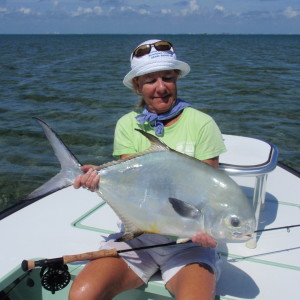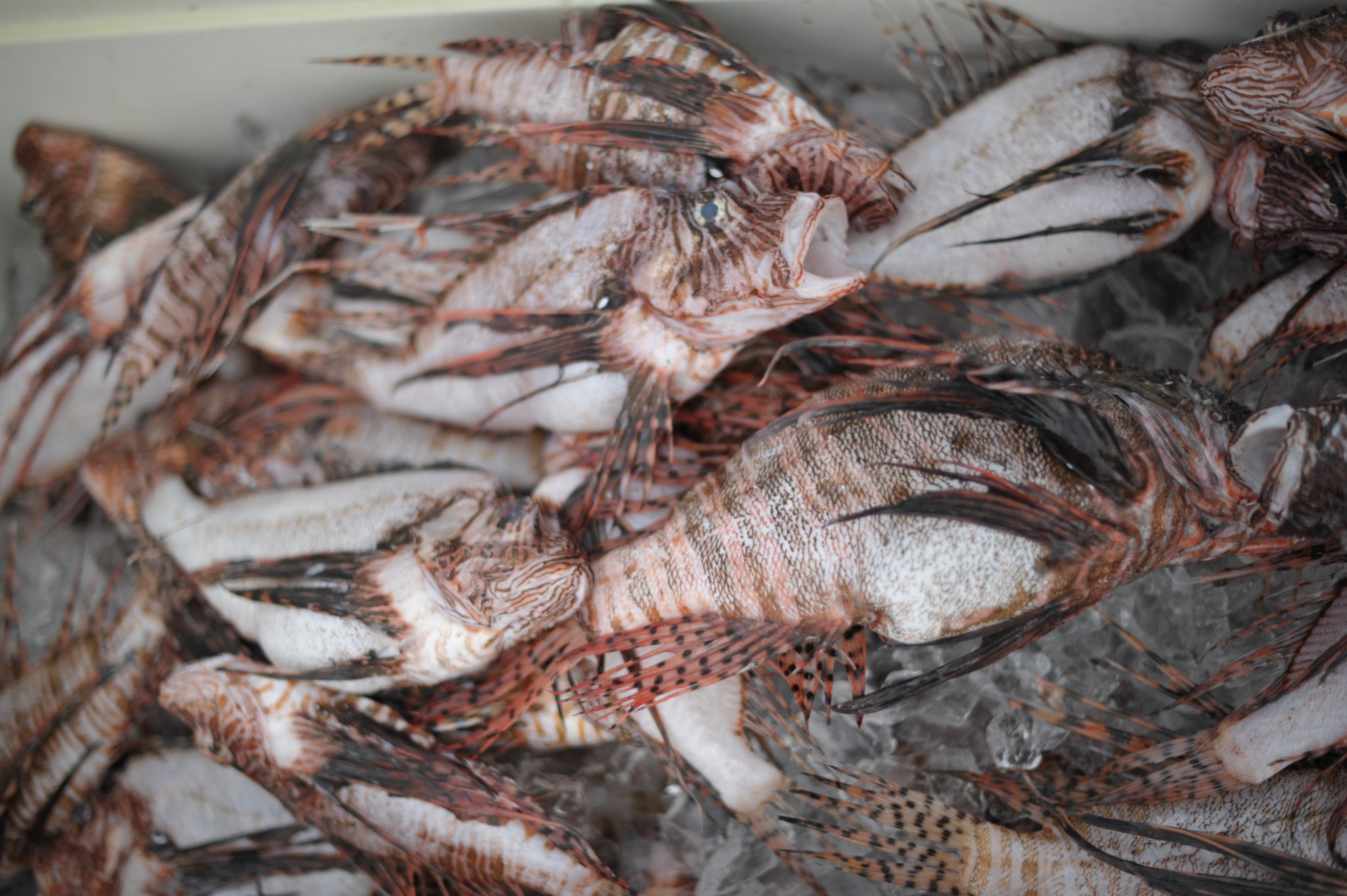NMFS delayed decision for 3 years
After nearly three years of trying unsuccessfully to gain federal approval for a one-year experiment aimed at curbing the spread of invasive lionfish in the Gulf of Mexico and South Atlantic, the Florida Keys Commercial Fishermen’s Association is crying uncle.
The group has withdrawn requests to NOAA and the Florida Keys National Marine Sanctuary for exempted fishing permits to test four trap designs that would selectively capture the exotic predators while keeping bycatch to a minimum.
Lionfish — the peppermint-striped reef dwellers from the Indo Pacific — have decimated native fish populations all the way from Long Island, N.Y., to the western Gulf of Mexico, as well the Caribbean, since they were first detected near Fort Lauderdale in the 1980s.
Popular in the aquarium trade, the flaming-maned nuisances with venomous spines will gobble any fish they can fit in their mouths — including juvenile snapper and grouper. No one has a clue as to their numbers, but marine scientists have found that a single female can produce as many as 6 million eggs in a year.
Federal and state government efforts to beat back lionfish have so far focused on encouraging divers to hold spearfishing derbies and exhorting seafood lovers to eat lionfish harvested as bycatch by commercial fishermen in their lobster and stone crab traps.
But neither of these programs was making a dent, so the commercial fishermen in the keys opted to be more proactive, according to Florida Keys Commercial Fishermen’s Association Executive Director Bill Kelly.
“We didn’t want a new fishery,” said Kelly. “The intent was to show proof of concept.”
Kelly’s group was one of three that filed formal permit requests with the appropriate agencies. The applicants had tentative sponsors lined up to pay for the research. Any day now, they were told by NOAA officials who needed to complete a review under the National Environmental Policy Act.
But as the months turned into years with no disposition, Kelly’s group opted to pull the plug.
“The regulatory process is so torturous,” Kelly said. “Why does it take three years to get approval for this?”
Ironically, Sarah Fangman, Florida Keys National Marine Sanctuary’s superintendent since September, said her agency is now ready to begin issuing permits, and Kelly’s group is free to resubmit if they’d like. And NOAA has issued a statement saying it has finalized its environmental review document, “which will streamline our response to future permit applications.”
“Why wouldn’t they simply revisit the original application, which in our opinion, provided a rigorous testing program as well as additional scientific research, public awareness and management techniques that would benefit all coastal states impacted by lionfish,” Kelly asked.
“In the interim, commercial spiny lobster fishermen will continue to harvest lionfish in unprecedented numbers — far exceeding all lionfish derbies combined in the Gulf of Mexico and South Atlantic,” he said.







